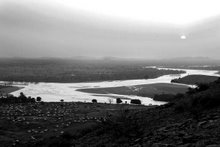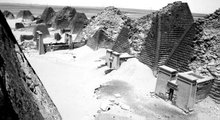In the first three months I moved frequently between the towns of Western Bahr el Ghazal and Juba (South Sudan), Khartoum, and West Darfur. I was overwhelmed with work and with an overdose of information, but my agitation was not just due to the normal feelings that accompany exposure to a new culture. Sudan has experienced only a decade of peace since World War II and remains beset by a different conflict on four of its borders. The government in Khartoum is set on obstructing humanitarian involvement and has been contributing to the crimes against humanity that are occurring in Darfur. The tension between South Sudan and North is so strong that many fear a resumption of the war, the war that lasted 22 years, killed millions of Sudanese, and left a lost generation in its wake. I am overwhelmed by the responses to my questions - a chaotic miscellany of motivations and hidden truths - and I don't know what to think.
Little that I have read in the press is forthcoming about events in Sudan. Many questions are left unanswered, or the explanations are overly simplistic. How are the conflicts in South Sudan and Darfur related? Why does Mohammed el-Bashir, the Sudanese president, not cooperate with the West? Why is the continuation of the war in Darfur simplistically explained as a conflict between Arab pastoralists and Black African farmers, when so may other factors – the influence of events in Chad, the destruction of the environment, events in South Sudan, or the role of humanitarian actors, among others – are also contributing to the conflict or preventing a peace.
My perspective is that of a humanitarian worker. They are the conclusions that I have made from my experiences here in Sudan.

Dinka Boy


